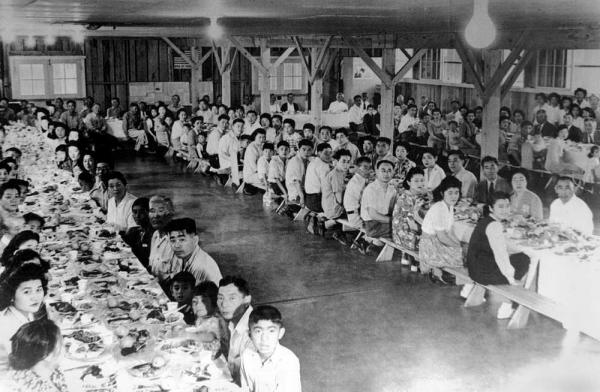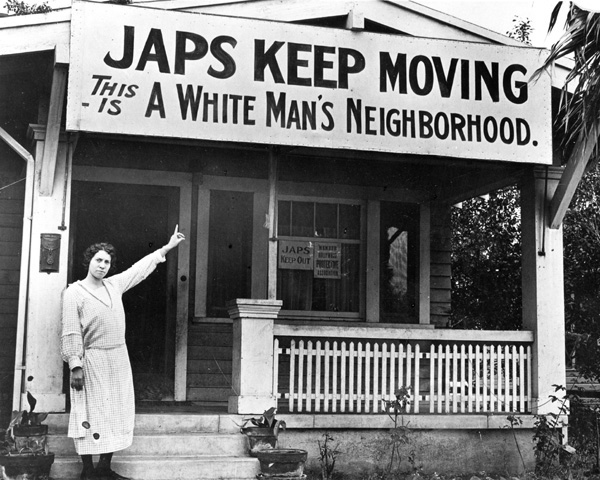
Today marks the 74th anniversary of the attack on Pearl Harbour, which left nearly 2,500 Americans dead and more than 1,000 wounded. Today, the country will once again engage in our annual tradition of solemnly remembering those who lost their lives in the surprise attack, and the many more servicemen killed when we entered World War II.
We cannot remember Pearl Harbour without remembering its aftermath, and this year in particular it is imperative that we contextualize the attack and what followed in light of contemporary events. The bombing of Pearl Harbour was not only a horrific attack that killed both American military personnel and civilians, but it sparked an immediate and aggressive racial fear and intolerance for America’s Japanese community. Japanese American families, some who could claim generations of living as citizens on American soil, suddenly found themselves treated with suspicion and hatred, suspected to be foreign spies for no other reason than their shared skin colour with America’s declared enemies. Politicians who had already staked their careers on a platform of anti-Asian and anti-immigrant policies decades earlier declared vindication. The US Government issued official propaganda posters that likened Japanese people to terrifying yellow-skinned monsters. Historians document that American soldiers viewed Japanese enemy combatants as “animals”.
The rising crescendo of American xenophobia and anti-Japanese bigotry culminated in the forcible incarceration of thousands of innocent Japanese American citizens and Japanese nationals. Those incarcerees lived under military gunpoint behind barbed wire fences for years before they were finally released, and given little more than a bus ticket in exchange for their freedom.
And eventually, the dehumanization of Japanese Americans reached such a deafening pitch that when the American government dropped two atomic bombs on the Japanese cities of Hiroshima and Nagasaki vaporizing over 200,000 civilians, we celebrated.

Today, America continues to whitewash this history in the textbooks we teach to our children. As America declares a new enemy in the spectre of terrorism, our intolerance finds a new target: American Muslims (and those whom we mistake in our racism for American Muslims). Hate crimes against Muslims have risen by 1600% since September 11, 2001, and Islamophobia remains at a frenzied high. The vast majority of men and women who are running for president next year to represent the Republican Party have built their foreign and domestic policy platforms around anti-Muslim intolerance and other forms of xenophobic nativism. An alarming number of elected officials are turning away Syrian refugees for no other apparent reason than because of their faith and skin colour. Politicians invoke Japanese American incarceration as an example of how we should treat America’s millions of innocent Muslims; they are heartened by the fact that this country has never declared the forcible, and racist incarceration of civilians by the government to be unconstitutional.
Today, thousands of Americans will tweet out their memories of Pearl Harbour. Today, I remember the nativism and xenophobia that infected America in the attack’s aftermath. Today, I remember the innocent Americans who found themselves the victims of an entire nation’s racist hatred — a hatred so all-encompassing it fractured a community.
Our yearly remembrance of Pearl Harbour should not just be a day of patriotism. We should look deeper into this Day of Infamy and its aftermath, and remind ourselves of how this horrific attack became our justification for an indefensible mistreatment of our neighbours and other fellow humans. We should solemnly remember not only the lives lost in Pearl Harbour, but also how our nation’s unchecked xenophobia grew slowly like a cancer into the rationalization of increasingly unthinkable acts.
In 1941, thousands of people lost their lives in Pearl Harbour, and their deaths were used to justify the racist incarceration and murder of hundreds of thousands more. Today, the same xenophobia — now targeting American Muslims — grows once again within the hearts and minds of America. As we remember December 7, 1941 today, we must take this opportunity to commit not just to the memories of lives lost, but also to not allow fear of our fellow Americans motivate us to repeat the mistakes of our history.

Update (12/7/2015): Just a few minutes ago, CNN reported that Donald Trump’s campaign has issued a press statement wherein the GOP front-runner argues the United States should ban all Muslim travel into the country. In 1907, anti-Asian xenophobia led to the Gentlemen’s Act that informally halted Japanese immigration to the United States, and later formalized in 1924 with federal immigration law preventing Asian emigrants from entering the country. These laws mirrored the 1882 Chinese Exclusion Act, which was the country’s first race-based anti-immigrant law. Barring movement of groups of people by shared race was the first step taken towards the decades of anti-Asian disenfranchisement that characterized the early twentieth century.
The Trump campaign’s decision to mark the anniversary of Pearl Harbor with a resurgent cry for enacting identity-based restriction of travel into the United States should signal to us that the Republican base is fully embracing a desire to repeat this country’s racist history when it comes to American Muslims. Donald Trump is a modern day, pro-capitalist Denis Kearney, which should alone disqualify him for the Oval Office.
